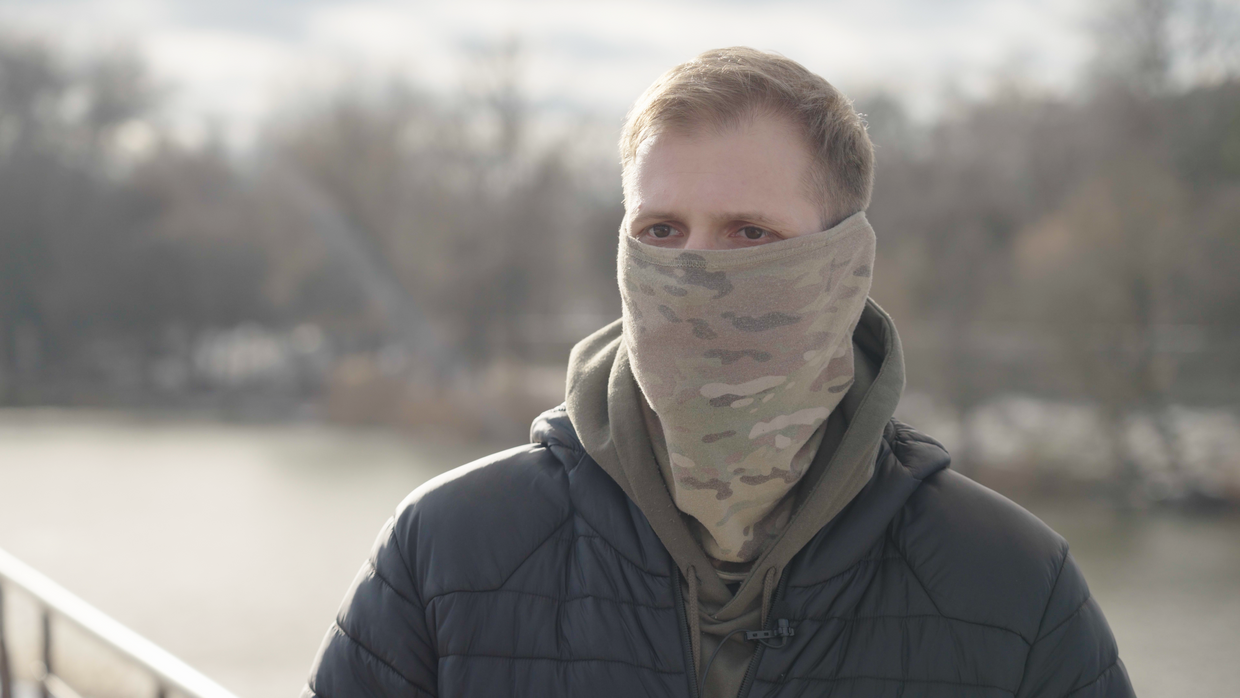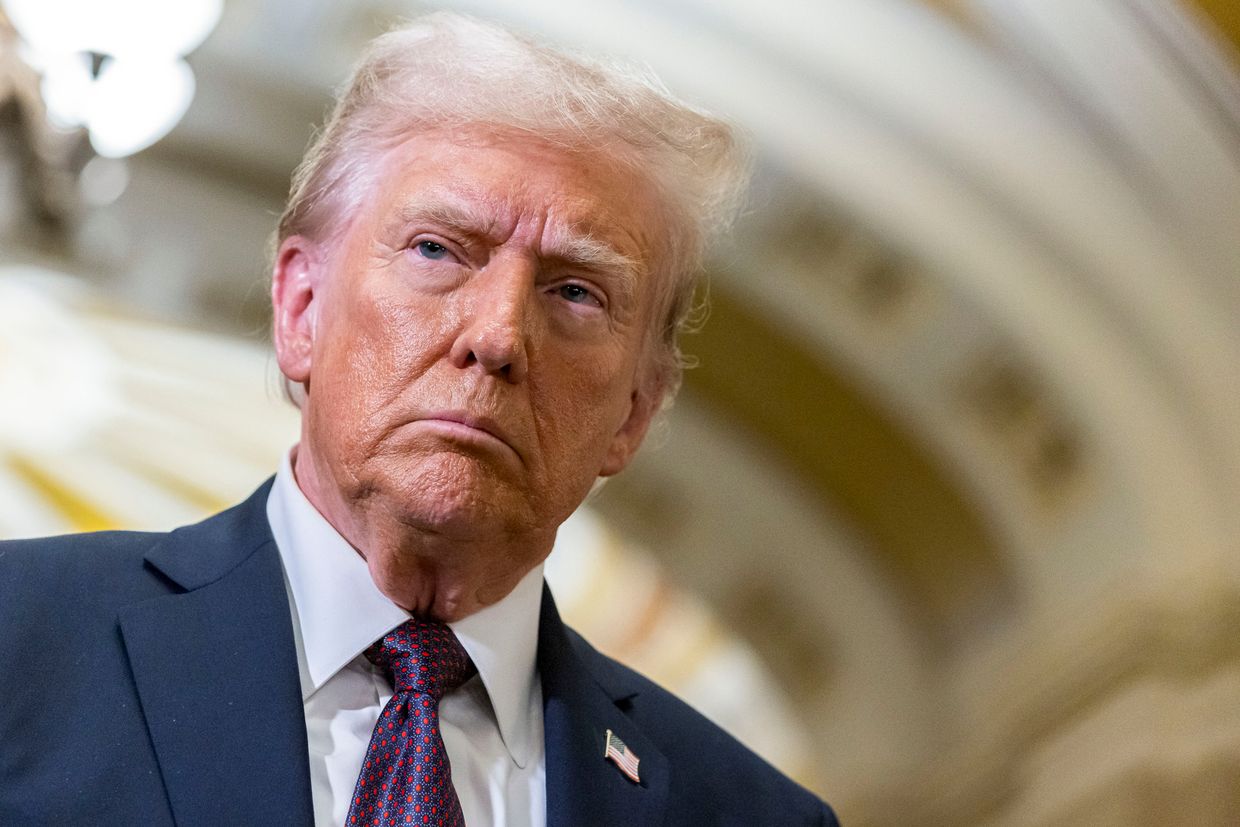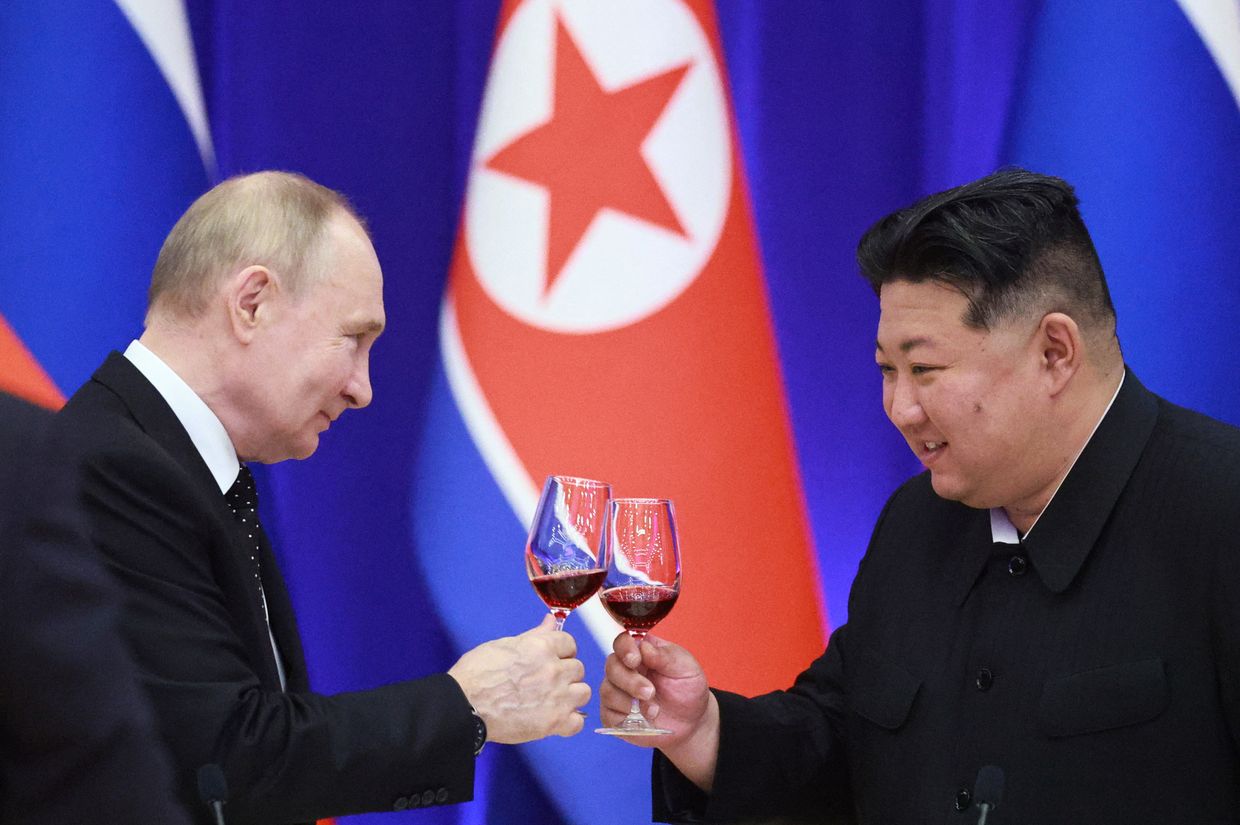'Absurd phenomenon' — The manpower issue threatening to weaken Ukraine's Air Force

A flight engineer checks the systems of a Mi-8MSB-V assault transport helicopter in an unnamed location, Ukraine, on July 11, 2024. (Ukrinform / Future Publishing via Getty Images)
Critically lacking manpower on the front lines where Russia continues to use its vast manpower advantage to make grinding advances, Ukraine has been scrambling specialists into the infantry in an effort to replenish losses.
Criticized widely by soldiers and experts for a “wasteful” use of specialist troops that have spent years honing their skills, the short-term solution has frequently led to their death or injury, according to soldiers interviewed by the Kyiv Independent over 2024.
Ukraine has been struggling with a manpower shortage — especially in the infantry — while Russia has intensified its offensive in Donetsk Oblast since the summer of 2024.
The issue of sending specialist troops to infantry units had largely been hidden in the shadows until a video surfaced online on Jan. 14, prompting responses from President Volodymyr Zelensky, and the General Staff of Ukraine’s Armed Forces.
'A real challenge'
In the almost three-minute-long video, around a dozen Ukrainian servicemen from the Air Force stand, as one reads aloud a message about what they describe as “a real challenge” that could “destroy the very foundation of our aviation.”
“Since 2014, we have been preparing and maintaining the aircraft, ensuring combat missions in the most difficult conditions, both day and night, defending our homeland from the enemy,” the speaker of the group – all wearing masks — says.

The aviation and technical personnel, who say that they have been fulfilling missions on Soviet-era MiG-29 fighter jets for over a decade, said they received an order to send "almost all technicians to the infantry, which means we will be left without technical personnel to service our aircraft."
The Ukrainian military command was trying to transfer 218 specialists to the infantry when the video was released, and 250 were previously transferred, according to the speaker.
“The technical staff is actually being destroyed, and without us, the aviation will not be able to function,” he says.
'40% killed'
According to the Ukrainian online newspaper Ukrainska Pravda, Commander-in-Chief Oleksandr Syrskyi issued an order on Jan. 11 to transfer over 5,000 Air Force personnel to Ground Forces units.
A senior Air Force officer, speaking anonymously to the outlet, said transfers began in spring 2024 and have now reached a "critical level," with unit staffing dropping to 50%.
An Air Force serviceman speaking on the condition of anonymity to the Kyiv Independent, painted an even grimmer picture.
He said around a couple thousand Air Force servicemen had already been transferred to the infantry since the beginning of the full-scale war, with about 40 % being killed, and 40% wounded in the first days if they were directly sent to the front, while some were still fighting.
He added that these are often people who studied for around four years, and further built their knowledge over years of service, stressing the issue dampens morale.
'There were no plans'
In a rare example of a public outcry reaching the Ukrainian authorities, Zelensky on Jan. 14 tried to reassure that such transfers wouldn’t be made.
“There has been much concern and discussion today regarding these reassignments," he said in his evening address.
"I have instructed that everything be explained to the public and not to reduce the ranks of specialists critical to the Air Force — aviation, air defense, and mobile fire units."
The General Staff of Ukraine’s Armed Forces also insisted on the same day that "there were no plans to transfer the acute shortage of specialists of the Air Force’s engineering and aviation service who maintain aircraft to infantry units."

“Instead, the Air Force of the Armed Forces of Ukraine is increasing the number of technical and flight personnel,” it added.
Acknowledging the "not easy" situation on the front, and that "many areas lack infantrymen," the General Staff said the transfer of some personnel is "a necessary step" to strengthen defense by reinforcing combat brigades with soldiers from other branches of the Armed Forces.
But it stressed that Syrskyi prohibited the transfer of high-tech specialists and those trained abroad on foreign models of weapons and equipment.
'It's just a number, not people'
Understanding the complexity of the issue, some soldiers however remain pessimistic about the prospect of possible improvements going forward.
The core issue is that no one is bearing responsibility, according to the anonymous Air Force serviceman. He said that the order comes to transfer a certain number from a specialist unit, and the local commander has to pick whom to send, which he said is often difficult because “we need everyone” and there is no replenishment.
“Maybe for them (in the military leadership), it's just a number, not people,” the Air Force serviceman said, adding there should be a “responsibility and accountability” mechanism for the generals making the decisions.
Glen Grant, a former British army lieutenant colonel who has advised the Ukrainian Defense Ministry, and closely observes military issues in Ukraine, said that resource management problems persist due to the lack of competent generals, and the inability to learn from mistakes.
“You just don't take your technicians and put them into harm's way because you need them as technicians,” the Latvia-based military expert told the Kyiv Independent.


“You may strengthen one area, but then you weaken another area, so the compensation is lost. You're still back where you are, except you are actually twice worse off because you probably lose the technicians, dead.”
A couple of recent appointments, such as that of General Mykhailo Drapatyi as the commander of Ukraine's Ground Forces in November 2024, offers hope, according to Grant, but it is still unclear whether it will be enough to change the overall dynamics of the Ukrainian military leadership.
“The message is clear that the people don't value soldier's lives if they're going to send them into the front line without being properly trained,” Grant said.
“The message is clear that the people don't value soldier's lives if they're going to send them into the front line without being properly trained.”
Ukrainian military expert Mykhailo Zhyrokhov on the other hand said he was skeptical of the number of specialists that the Air Force members said were being transferred to the infantry.
He argued that the situation is “ambiguous” because there is no confirmation that such a number is thrown into the front-line trenches, and he doubts the Ukrainian military leadership would “shoot itself in the foot” and “destroy aviation” as has been claimed.
“It is typical human behavior — nobody wants to go to the front, despite the fact that they are professional soldiers, they are contract soldiers, and they have been there all this time, these last twenty years defending the sky,” Zhyrokhov told the Kyiv Independent.
He also raised questions about how the servicemen obtained the numbers when the information was “secret.”
With the Air Force gradually Westernizing its Soviet-era models of aircraft, there is a surplus of specialists who are only familiar with the older versions who would be sent to the reserves if the country was not at war, according to Zhyrokhov.
He said he believed that the surplus, such as the guards based at the airbases, would be sent to non-combat roles as a solution.
Mentioning Air Force personnel who fought in hot spots in the east in 2023, such as in the Battle of Bakhmut, Zhyrokhov argued that Air Force servicemen have to immediately get used to the grim realities of the war, just like civilian-turned-soldiers.
“In wartime, such cases exist, have existed, are present, and will continue to exist,” Zhyrokhov said.
Ukrainian open-source war monitoring website DeepState, which said that it received a hundred reports from soldiers about the issue concerning the transfer of Air Force and Air Defense specialists to the infantry after the scandal came to light, said that a large number said they received only a few days’ training before being sent into brigades and "the picture there is not the best.”
“The deliberate sending of specialists who have specific skills, knowledge and experience and their absence directly affects the work of the unit,” DeepState said in a Telegram post.
Summarizing it an “absurd phenomenon,” DeepState said the effectiveness of the transfer of specialists to infantry “has always been minimal” and also resulted in the loss of some servicemen who attained valuable skills abroad.












